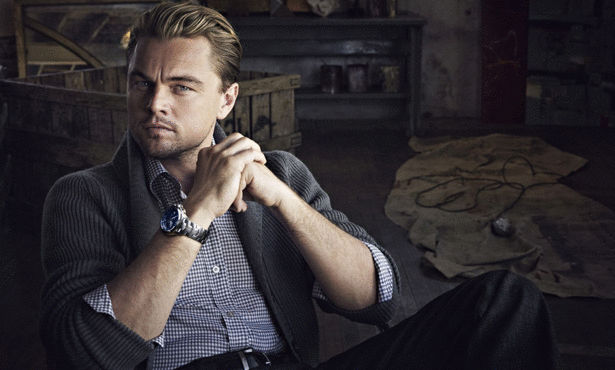As the inter-governmental Paris Agreement to limit global temperature rises comes into force on November 4, the US actor calls on individuals to examine their own habits and use their vote wisely to tackle the issue.
"I didn't want the film to scare people, or present them with statistics and facts that they already know, but to focus on what can and must be done immediately so that we can leave our planet a livable home for future generations," the 41-year-old said.
"We are quickly running out of time," said DiCaprio, who also co-produced the film.
From the remote Canadian landscapes where he shot "The Revenant", to the suburbs of Beijing, Greenland, Indonesia's Sumatra and the Pacific atolls of Kiribati, DiCaprio whizzes round the planet to see the extent of the damage.
DiCaprio shows viewers the effects of pollution in China and examines the sea levels which threaten tiny island communities and the longer-term effects of deforestation.
- 'Take action now' -
DiCaprio, who has been named a United Nations "messenger of peace" on climate change, attacks giant corporations and politicians -- especially Republican presidential nominee Donald Trump -- for their stance on climate change.
He targets those he says orchestrate campaigns of media disinformation and lobby hard to block reforms that would better look after the environment.
From former US president Bill Clinton and UN Secretary-General Ban Ki-moon to Pope Francis, DiCaprio interviews powerful leaders on the chances of avoiding climate disaster.
US President Barack Obama voices cautious optimism, calling action against climate change "a national security issue".
"It's why we have to take action now. There is no reason we don't solve the problem on time."
When it comes to solutions, DiCaprio's message is clear: "it's up to all of us".
He urges people to stop consuming palm oil-based products, replace some of our reliance on beef and chicken with vegetables and "vote to tell that we know the truth about climate change".
On the political front, he defends the need for a carbon tax, hails the development of solar and wind power, and enthuses about the megafactory of South African visionary Elon Musk, producing electric car batteries.
The documentary comes out in Britain and the United States on Friday before being screened on the National Geographic television channel on October 30.
-------------------------------------------------------------------------------------------------------------------
"I didn't want the film to scare people, or present them with statistics and facts that they already know, but to focus on what can and must be done immediately so that we can leave our planet a livable home for future generations," the 41-year-old said.
"We are quickly running out of time," said DiCaprio, who also co-produced the film.
From the remote Canadian landscapes where he shot "The Revenant", to the suburbs of Beijing, Greenland, Indonesia's Sumatra and the Pacific atolls of Kiribati, DiCaprio whizzes round the planet to see the extent of the damage.
DiCaprio shows viewers the effects of pollution in China and examines the sea levels which threaten tiny island communities and the longer-term effects of deforestation.
- 'Take action now' -
DiCaprio, who has been named a United Nations "messenger of peace" on climate change, attacks giant corporations and politicians -- especially Republican presidential nominee Donald Trump -- for their stance on climate change.
He targets those he says orchestrate campaigns of media disinformation and lobby hard to block reforms that would better look after the environment.
From former US president Bill Clinton and UN Secretary-General Ban Ki-moon to Pope Francis, DiCaprio interviews powerful leaders on the chances of avoiding climate disaster.
US President Barack Obama voices cautious optimism, calling action against climate change "a national security issue".
"It's why we have to take action now. There is no reason we don't solve the problem on time."
When it comes to solutions, DiCaprio's message is clear: "it's up to all of us".
He urges people to stop consuming palm oil-based products, replace some of our reliance on beef and chicken with vegetables and "vote to tell that we know the truth about climate change".
On the political front, he defends the need for a carbon tax, hails the development of solar and wind power, and enthuses about the megafactory of South African visionary Elon Musk, producing electric car batteries.
The documentary comes out in Britain and the United States on Friday before being screened on the National Geographic television channel on October 30.
-------------------------------------------------------------------------------------------------------------------









 Home
Home Politics
Politics











